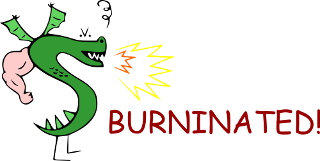The question was added new information claiming it satisfies all the criteria for burnination. Prima facie, it seems no effort is put into this claim.
It fails all the preliminary checks before burnination:
Does it describe the contents of the questions to which it is applied? and is it unambiguous?
No, the tag is ambiguous and is equally applicable to:
- branch protection (VCS)
- access control
- security measures
Is branch protection not a security measure? Is access control not a security measure? How is it ambiguous? Using different specific names for the same word doesn't make it ambiguous. We have a specific access-control tag. There does seem to be a overlap with access-control. access-control would indeed be a subdivision of protection. The former requires a specific management system in place, based on user accounts, while the latter does not. It's important to note that both concepts described here and concepts like cryptography, authentication,authorization,privacy, integrity, encryption, ssl are all subdivisions of security. But, why aren't we burning security? Inside authorization, we have a more specific tag oauth. Inside oauth, we have subdivisions like google-oauth. Just because there are more specific tags available doesn't mean we should burn the parent. Do we burn oauth, because we have subdivisions like google-oauth? Do we burn authorization, because we have oauth? Or Do we burn security, because there are many specific tags available. No! Because, there might be concepts, not described by any of the subdivisions. And it helps to categorize all subdivisions in a single parent, making it easy to search. Just because there are more specific subdivisions doesn't make the parent tag ambiguous by itself. Does having names for Nissan or Ferrari make the term "Car" ambiguous?
Is the concept described even on-topic for the site?
Yes and no, the concept can be on or off-topic depending on the context (questions about protection can be about security, general computing, or asked in a programming context).
That's vague. The same argument can be said of any tag. Let's take [python]. "Depending on context", say, The question is about learning python or getting a python book, the question is offtopic. Does that make the concept described, the language tag [python] off topic? Of course not. The real question is: Is the concept offtopic?
Does this definition, feel offtopic?
Protection refers to any process that involves hiding the data or restricting access to the said data, such as "read only access", "write access", "copy access".
Does it at least attract offtopic questions more than other tags? There is zero evidence to suggest that it does.
Does the tag add any meaningful information to the post?
No, protecting something is a goal, while on-topic questions revolve around specific programming problems / algorithms that are often only circumstantially related to protection.
Again, the same thing can be said of any tag, if you add "something is a goal" to it. Making a calculator in python is goal. typescripting something is a goal. Yes, it is. But it adds meaningful information to the tag. That the question is dealing with that syntax and language. Maybe it's not about accomplishing something. Maybe it's about debugging. Maybe it's about the why something is failing to trigger. The questions in protection isn't necessarily about "protecting something". Sometimes, it's about how to access protected resources. Sometimes, it's about why protection fails in certain circumstances.
Does it mean the same thing in all common contexts?
No, the only common meaning is that it is a process of restricting access to something which, as described above, can involve completely unrelated tasks.
If you read the above answer without the "No", it's clear it means the same thing in all cases, that it is a process of restricting access to something. It means the same thing in all contexts.
Forget the law, The spirit of burnination criteria is this:
Is the tag causing a fairly large amount of harm?
If a particular tag is bringing lots of off-topic posts to the site, then it certainly is harmful.
As said before, there's zero, zilch, null evidence to suggest it brings in any off-topic question. If it did, which it doesn't, the criteria says
If the tag isn't harmful, consider instead a divide and conquer approach to the problem by using one or more of these alternative strategies:
Updating the tag wiki excerpt (an edit can be suggested by anyone, subject to approval)
Merging or renaming a tag (which can be handled instantly and painlessly by a moderator)
Adding/removing a tag synonym (which can also be handled instantly and painlessly by a moderator)
I've updated the tag wiki in a attempt to make the tag excerpt useful. But it is very strange, that just after updating the wiki, the post was updated, without due diligence to claim, it satisfies all the burnination criteria and that's with the grand-fathered +14 votes, making it easier to pass the +20 criteria, while answers defending it had to start from 0.
Your distaste for a frustrating game shouldn't result in the destruction of otherwise-valid tags

Since activity resurfaced. Activity surfaced when I edited the tag wiki and it started getting downvotes first(-3/+1). Then, burninate criteria was sideloaded, which did make it gain upvotes(and my tag wiki answer was downvoted). But upvotes were still less than the burninate criteria of +20. If we remove the initial 14 votes before the criteria was sideloaded, that's just a net +7 votes. If we remove the initial 10 votes before the burn request, that's just +11 votes both well below +20 and therefore shouldn't even be considered for burnination phase 2. It matters not whether all[1/2]